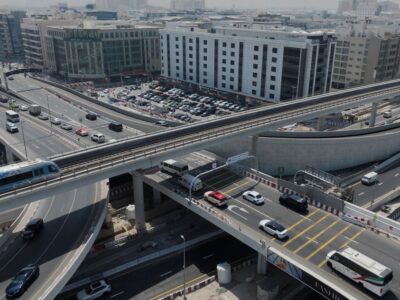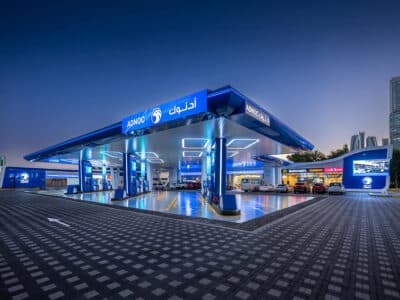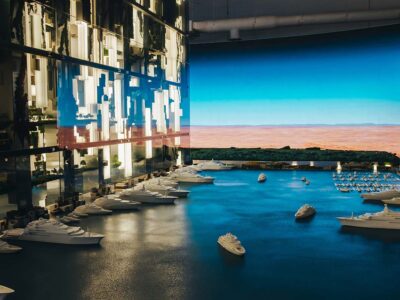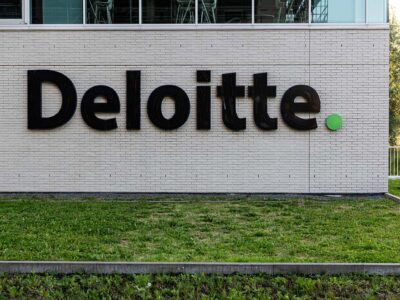The post-coronavirus landscape is one of the most fascinating times for the retail industry as both consumers and businesses seek more authentic and socially conscious experiences, said a business expert.
Known for her TV show Customer Whisperer, Kate Hardcastle said that consumer habits have changed, following almost a year spent dealing with the pandemic, and retailers need to adapt to that.
In an exclusive interview with Arabian Business, Hardcastle explained why consumers are more ethically and environmentally conscious nowadays and how retailers need to cater to that to continue attracting business.
 Retail expert Kate Hardcastle.
Retail expert Kate Hardcastle.
What do you think will be the long-term impact of the coronavirus pandemic on consumer spending habits and the retail landscape?
It’s fascinating because we were at this really big tipping point anyway with consumers coming to the forefront and brands having to listen. You could say that the tail was wagging the dog, and then Covid hit.
Despite its tragedy and heartache, the pandemic brought about us living the next normal, or the next phase, and it’s really expedited so much of the tiny things we had started to see. We’ve seen the growth of online, which makes sense because we’ve been living at home a lot. We’ve seen a movement into really focusing on things that truly matter to us such as spending quality time together, re-engaging with our family, not feeling as on the move as we were, etc.
Once we’ve been taken so far away from things we love, like travel, social activities and going out to restaurants, I think it is only normal that the consumer mind-set will swing back somewhat, but I don’t think it’s going to swing back all the way to what the previous way of life was.
For me, this has been the great reset. The button has been pressed and consumers are going to re-emerge into a very different mind-set when it comes to engaging with businesses. I think one of the most exciting takes from that is consumers are looking for businesses to be good.
It’s certainly going to be one of those points in history when in years to come we’ll look back and be able to define exactly when that changed happened.
When it comes to businesses “doing good”, there is always the fear of appearing phony. How can retailers deal with that?
It’s about authenticity and respect. I think consumers are fed up with greenwashing about environmental issues and hearing over-promises and under-delivery. There is this rebellion and I think we as business owners will feel it in our sales longer term if we do any of that “plastic-y” type of public relations.
To give a bit of credit to business owners, consumers can be quite “pick and mix” with their ethics and environmental concerns; sometimes things really matter and sometimes they become less important than price, value or desirability so it can be quite challenging for businesses.
What we do with our clients is we help them understand this is a relationship and just like a very human relationship, things change. There can be bad or good days and days where you need to listen more and talk less.

It’s not about changing the spots of the leopard, it’s just about being clear on who you are as a business and what your offer is and then looking at where you can grow, learn and evolve through this.
So certainly, when it comes to ethics, no false promises because in the long term, it’s not going to serve you well: social media is abound with people making it quite clear where businesses have let them down.
What practical advice would you give businesses who want to focus on ethical and environmental issues?
I think businesses are trying to reach the absolute top of Everest every time, they are thinking in terms of what is the best they can do with environmental and ethical issues and only when they have achieved that would they tell everyone about it. For example, only when they have gone completely with electric cars, would they announce it.
I think it’s really important to really remind businesses and their owners that no one’s asking for perfection. The consumers are not expecting perfection but instead they’re looking to be part of the journey along the way.
How do you think UAE’s malls should adapt in order to attract the post-coronavirus consumer?
What I would say with the malls is they provide a place to just be so there’s a really good foundation there to be able to create something new.
I would certainly be looking at those communities and asking who needs to meet, who needs to get together safely, what you can offer them in terms of really basic facilities and also the more sophisticated facilities.

Then the great thing is, once you’ve got the people there, they will shop, eat, and drink but the first thing has got to be finding a good reason to draw them to you. I think the spectacle way that we used to do that by always having something that was bigger, better or more exciting isn’t going to always work now because as I said these consumers are in in really new mind-set and a very new era.
So what is going to work? What is the right blend of online and offline shopping that retailers need to hit?
It’s so evident they’ve been treated [as] quite separate by a lot of organisations and the perfection comes in the blend.
With online, it’s quick and easy. It allows you to search very freely and to compare and contrast. The next future of online is for it to become more human so I would expect more video content, more style guides, and more support… more of a human touch really.
Traditional bricks and mortar have the human touch in theory but unfortunately some retailers just haven’t excelled at that. If I was a retailer of any part of the pricing structure, my people would be what I would invest the most in to ensure an ease of experience.

I would need to create a more immersive experience because what I am probably going to realise now more than ever is that people don’t need to shop anymore, you have to make them want to shop.
I think we’ve got to sell whatever it is that we’re doing with fun, and joy because that’s the other thing I’m learning from consumers. They’ve had over 12 months of having to deal with mortality issues, the talk of death rates every day on media, watching places that they love to travel to being cut off to them…there’s been a real cessation of joy and it’s our job as business owners, as long as it’s suitable and appropriate, to try and work out how can bring some of that back.








